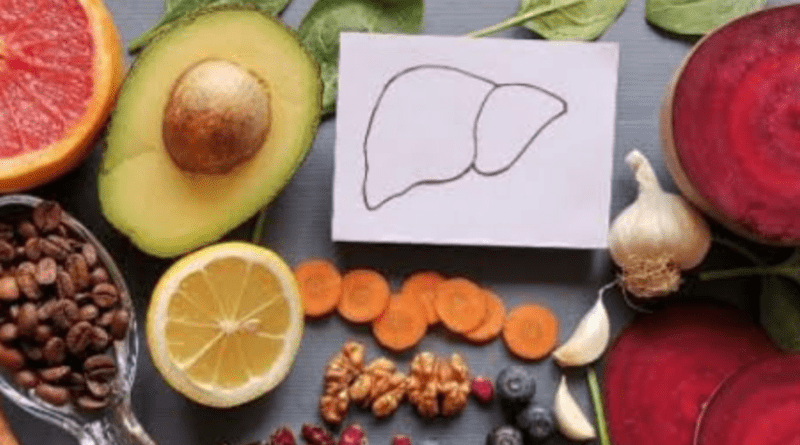“Revealing The Best Balanced Diet For The Liver.”
The greatest strategy to enhance liver health is to eat a well-balanced, nutrient-dense diet high in fibre, lean or plant-based protein, and healthy fats.
A healthy liver eliminates toxins from the body and generates bile, a yellow-green liquid that helps the body digest fat by breaking it down into its constituent fatty acids.
Although fatty liver disease destroys the liver and impairs its normal function, lifestyle modifications can stop the disease’s progression.
For overweight or obese people with non-alcoholic fatty liver disease (NAFLD), progressive weight loss with a diet low in calories, regular exercise, and good food is the first line of treatment.
For fatty liver disease, the diet generally consists of:
Berries with veggies:
Consuming less of some meals and drinks, such as those heavy in added sugar, salt, refined carbs, and saturated fat; limiting alcohol consumption; and consuming high-fibre vegetables like legumes and whole grains
To help reduce abnormal liver enzymes, drink coffee:
Coffee may help shield your liver from non-alcoholic fatty liver disease (NAFLD).
A trusted source has linked regular coffee drinking to a lower risk of developing non-alcoholic fatty liver disease (NAFLD) and the progression of liver fibrosis in people who have already been diagnosed with the disease.
In those who are at risk for liver problems, coffee also seems to reduce the quantity of aberrant liver enzymes.
Greens to avoid gaining weight:
Leafy greens like spinach and others include compounds that may be able to combat fatty liver disease.
In 2021, researchers conducted an observational study. Due to the nitrate and unique polyphenols in spinach, Trusted Source discovered that eating the leafy green reduced the incidence of non-alcoholic fatty liver disease (NAFLD).
Soy and beans to lower the risk of NAFLD:
Soy and beans have both demonstrated potential for lowering the risk of NAFLD.
An overview of science Legumes, including lentils, chickpeas, soybeans, and peas, are high in nutrients and also include resistant starches that support gut health, according to Trusted Sources of Diet and Liver Disease.
Fish can lower obesity and inflammatory levels:
Omega-3 fatty acids are abundant in fatty fish, including trout, sardines, salmon, and tuna. taking an omega-3 supplement may help people with NAFLD by lowering triglyceride levels, increasing protective HDL cholesterol, and decreasing liver fat.
Whole grains are an excellent source of dietary fibre.
Consuming oatmeal and other whole-grain, high-fibre diets lowers the risk of disorders associated with non-alcoholic fatty liver disease (NAFLD).
According to studies, people with NAFLD may benefit from a healthy diet high in high-fibre foods like oats, which may also lower triglyceride levels.




